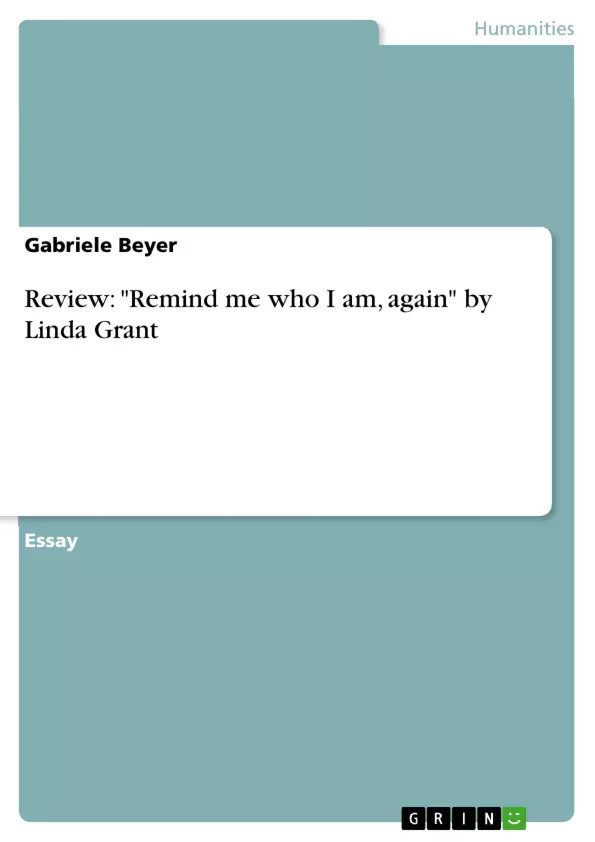In the following I want to analyze different perspectives of the illness in the narrative by Linda Grant.
On the beginning I start with theoretical points like ‘What is the story about’ and ‘Who is telling the story’ and so on. Furthermore I want to explore the moral values, different perspectives of different people on the disease, the process of the illness and different dynamics, e.g. between mother and daughter and the relationship of power between doctor and patient. On the end I want to interpret the style of writing in the use of metaphors and similes. In between I will try to make short conclusions. But nevertheless, even liking this book a lot, there are always some critical points, reflected and shown under the chapter ‘limitations’.
Inhaltsverzeichnis (Table of Contents)
- Content and characters
- Kind of story
- Perspectives
- The process of the Illness, relationships and influences
Zielsetzung und Themenschwerpunkte (Objectives and Key Themes)
This text analyzes the narrative of "Remind Me Who I Am, Again" by Linda Grant, focusing on the author's portrayal of her mother's illness and the impact on the family dynamic. The essay explores the illness itself, the influence of the illness on individuals and their relationships, and the author's personal reflections on life and mortality.Key themes:
- The experience of dementia and its impact on the individual and their family
- The changing dynamics within families in the face of illness
- The author's personal journey of self-discovery and the meaning of life
- The role of caregiving and the challenges of providing support for a loved one with a debilitating illness
- The complexities of memory and the changing nature of identity as a result of illness
Zusammenfassung der Kapitel (Chapter Summaries)
Content and characters:
This section introduces the book's main character, Rose Grant, who is suffering from Multi-Infarct-Dementia. The author, Linda Grant, details the process of her mother's illness and how it affects both Rose and her family, particularly Linda and her sister Michele.Kind of story:
This chapter discusses the narrative style, noting that the story is told chronologically with occasional flashbacks. The author suggests that the story is a quest narrative, exploring the journey of self-discovery undertaken by both Rose and Linda.Perspectives:
This section analyzes the various perspectives presented in the book, highlighting the dominant perspective of Linda, followed by her sister Michele, the carer John Bridgewater, and Rose's own voice. The author explores how each perspective contributes to a multifaceted understanding of the illness.The process of the Illness, relationships and influences:
This chapter delves into the progression of Rose's illness and its impact on her relationships with others, focusing on the changing dynamics between mother and daughter. The author explores the lay perspective of Rose as she navigates her deteriorating condition, revealing her evolving sense of self.Schlüsselwörter (Keywords)
The text delves into the complexities of dementia and caregiving, analyzing the impact of illness on family dynamics, the personal journey of self-discovery, and the changing nature of memory and identity. Key terms include: Multi-Infarct-Dementia, family dynamics, caregiving, memory loss, self-discovery, narrative perspective, and personal reflection.- Quote paper
- MA Soziologie Gabriele Beyer (Author), 2011, Review: "Remind me who I am, again" by Linda Grant, Munich, GRIN Verlag, https://www.hausarbeiten.de/document/211090


